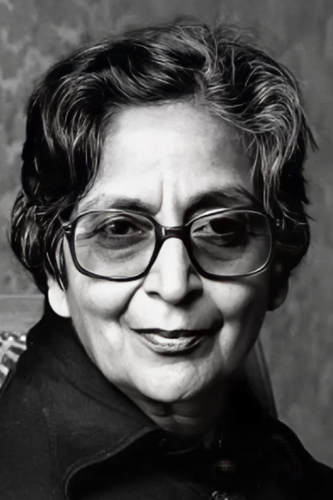
Personal info
Known for
Ultimate Talent
Gender
Female
Birthday
31 August
Location
Punjab, Pakistan
Edit pageAmrita Pritam
Biography
Amrita Pritam was one of the most celebrated poets, novelists, and essayists of modern Indian literature. Writing primarily in Punjabi and Hindi, she gave voice to the emotions of women, the trauma of Partition, and the eternal search for love and freedom. She is widely regarded as the first prominent woman poet of Punjabi literature.
🌿 Early Life and Background
Amrita Pritam was born on August 31, 1919, in Gujranwala (now in Pakistan). Her father, Kartar Singh Hitkari, was a scholar and poet, and her mother passed away when Amrita was just eleven years old — a loss that deeply shaped her sensitive nature. After the Partition of India in 1947, she moved from Lahore to India, an experience that profoundly influenced her writing.
✍️ Literary Career
Amrita Pritam began writing at a young age and published her first poetry collection when she was just sixteen. Over her long and prolific career, she wrote more than 100 books, including poetry collections, novels, essays, and autobiographies.
Notable Works
Poetry: Lok Peed (1944), Sunehade (1955), Kagaz Te Canvas (1981)
Novels: Pinjar (The Skeleton) – her most famous novel, depicting the suffering of women during Partition; later adapted into an acclaimed film
Autobiography: Rasidi Ticket (The Revenue Stamp) – a candid and introspective account of her life and loves
Her most famous poem, “Ajj Aakhaan Waris Shah Nu” (“Today I Invoke Waris Shah”), is a heart-wrenching lament on the violence and pain of the Partition, calling upon the Sufi poet Waris Shah to awaken and witness the tragedy of Punjab.
🌺 Themes and Style
Amrita Pritam’s poetry is known for its emotional depth, lyrical beauty, and bold expression. Her works explore themes of love, loneliness, womanhood, spirituality, and social injustice. She was one of the earliest female writers in India to write openly about a woman’s desires and inner world, challenging patriarchal norms.
🏅 Awards and Recognition
Sahitya Akademi Award (1956) for Sunehade
Padma Shri (1969)
Jnanpith Award (1982), India’s highest literary honor
Padma Vibhushan (200